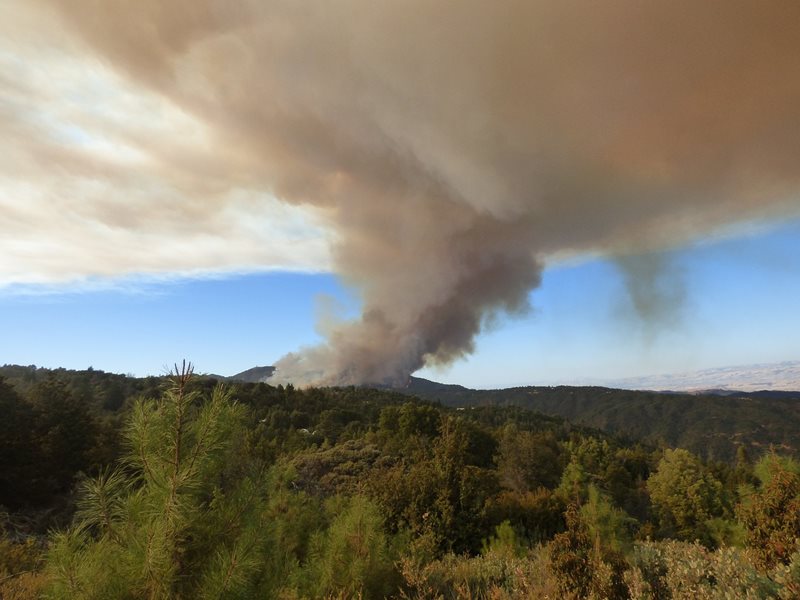
Summer is almost here, and with those hotter days comes the threat of wildfire.
Wildfires threaten air quality, people's health, the environment, and the economy. Across the west, the number of acres burned by wildfires is on the rise due to increased temperatures.
Current climate change modeling indicates that temperatures will continue to climb, and precipitation will decrease in the decades ahead. Climate scientists predict 1.1 million acres per year will burn across the region by the 2040s, putting Washington’s air quality and forest lands at risk. As the frequency and intensity of wildfires increase, so do their impacts. Wildfires can:
- Cause unhealthy levels of air quality, creating respiratory problems for some people.
- Threaten homes, property, and agriculture.
- Destroy forestland and its resources.
- Damage habitat for wildlife.
How smoke affects your health
Smoke is made up of gases and particulate matter that can be dangerous when inhaled. If you, or someone you know, are exposed to smoke or unhealthy levels of air pollution, monitor the symptoms closely, which might include:
- Eye, nose, and throat irritation
- Shortness of breath, asthma attack, or lung irritation
- Nausea
- Headaches
- Watery or dry eyes
- Persistent cough, phlegm, wheezing, scratchy throat, or irritated sinuses
- Irregular heartbeat, chest pain, or fatigue
- Nonfatal and fatal heart attacks
Learn more about how smoke affects your health.
How to prepare for wildfire season
You can take precautions prior to wildfire season by stocking up on food, medicine, and other essentials so that you don't have to go out when it's smoky. Make a plan on where you will go and gather essential items, like financial and personal documents, if you have to leave the area. Be sure to include your pets, and their food and medicine, in your plan.
Outside your home:
You can prepare the perimeter of your home by using fire-resistant landscaping materials and keeping your fence lines clear of debris. Reconsider burning yard waste, try alternatives like chipping or composting instead.
If you have to be outdoors, you can protect yourself by wearing an N95 mask.
Before you burn anything, whether it be yard waste or a campfire, check for burn bans in your area. Many wildfires start by campfires that are not fully extinguished.
Inside your home:
Consider buying a portable air cleaner, or make your own clean air fan. Check that your furnace or HVAC system's filter is clean and has a MERV rating of 13 or higher. If your system has a fresh-air intake, learn how to close it during smoke events. Keep windows closed and pay attention to local authorities in case you have to evacuate.
In your vehicle:
Set your vehicle's fan to recirculate so that smoke doesn't enter the cabin.
How to be notified
Sign up for FEMA Wireless Emergency Alerts and monitor the air quality in your area through the AirNow website or Washington Smoke Blog for additional information. You can also find additional resources through EPA's Smoke-Ready Toolbox.
To report an illegal burn or unhealthy smoke, call 1-866-211-6284 or visit ecology.wa.gov/reportburning.
#SmokeReady2020

